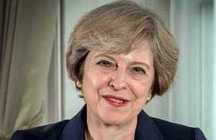
Intro:
Hello and welcome to "Westminster Bubble: 2015" This is a game where you shall control the politicians, journalists, spin doctors and other people involved in the running of the United Kingdom of Great Britain and Northern Ireland. I have never run a game before and this will likely go down in a horrific spiral of fire, but let’s try anyways! The focus of your game is to lead your party, or political ideals, to personal fulfillment during the parliamentary years of 2015 to 2020 in an alternative history scenario with a super hung parliament. What your aims are, ambitions and goals for this fair nation of ours are yours, but as with every action in a democracy: things will not be easy for either the government or the opposition.
The year is 2015, and the UK has had another election. After 5 years of austerity under the Con-lib coalition under David Davis and Vince cable, the nation gave a resounding rejection of the present government. However, it also gave no clear indication who they wished to run the government: creating a hung parliament requiring more than two parties to reach an agreement. With 87% turnout and the AV system, the UK has produced some of its most hung results since the system was first introduced under Blair in 2000. As the main three parties fall, other more fringe nes have come to prominence, and now seek to capture a place in the government. This is the present state of the Westminster Bubble, and it is your role to guide the nation through this period of weakness and instability.
Mechanically the game will be light: favouring RP and more naturalistic systems than absolute mechanics with rigid mathematics. As such the voting system is mostly me eyeballing the amount of voters going for something and seeing how the parties would vote in real life. This does not mean, however, that player action is discouraged: on contraire, it is favoured. If you make a case for a common sense piece of legislation, or are passionately involved for a cause that is t is able to win over your less cynical colleges, then you will gain support for it.
Orders, bills and actions:
The government gets as many bills as it likes, but it should be wary as to whipping to the maximum extent. There are three types of whip, a one line (weak) two line (decently strong) and three line (vote for this or you die). These may be in favour or against whipping for a contentious issue: like a declaration of war or on a moral issue, may bring ruin upon your party. Free votes are always an option, it should be noted. Legislation is unlimited, but don’t expect everything you propose to get passed: the commons can be an cruel and vindictive place. If, as leader of the government, the opposition or some other ministerial role you wish to send orders, go ahead and do them in a format you prefer.
General rules:
- Be awesome to eachother
- I am always right (or something I mean it is quite common to put that on OT games but I’m only human afterall, don’t put the blame on me)
- For the love of god follow the forum rules I do not want to get banned.
- If you godmod, I shall smite these like Yahweh did Gomorrah.
- Please try to keep to your party’s actual beliefs and do some research, I do not want a europhile UKIP MP m’kay?
- If in doubt, see rule 2.
I am allowing both fictional and real people in this game, but a few words of warning First if you are going to be a real person of import (party leader, major figure OTL ect), please contact me first for approval, if you want to be your local MP or something, yeah knock yourself out. If you want to be fictional, do not expect a leading role straight away, also try to avoid using major constituencies. If you need me to identify a constituency for your char, PM me. Here’s a template:
Name:
Age:
Party:
Nationality [kinda important, a Scot will have different roles ect]:
Time in parliament:
Stances:
Bio:
FAQ:
“But Seal, none of this makes sense!”
Not a question, but yeah, this game was born of “what happens if we put other to 100% in an election modeler I found”, so yeah, not quite realistic per se: but interesting nonetheless.
"Can I still sign-up?"
Of course!
Our IRC is #WiR_Main on airlock Irc, our discord is here: https://discord.gg/sMS8qq5
Last edited:














